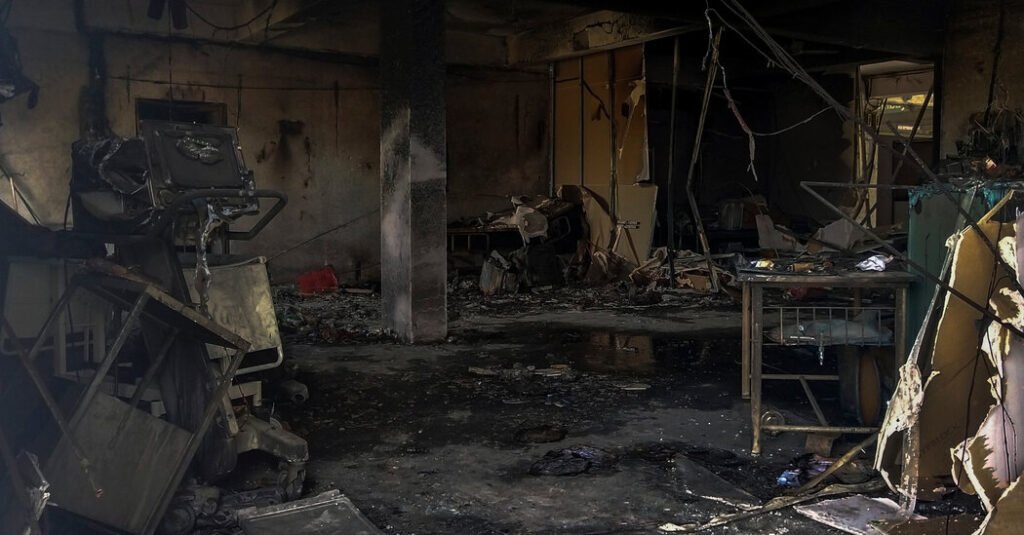The United States will begin restricting travel from India next week as a surge of infections and deaths overwhelms the South Asian country, which continued its catastrophic run of record coronavirus transmissions on Saturday with about 400,000 new reported cases and 3,500 deaths.
A deadly hospital fire in western India in the early hours of Saturday only added to the misery. The blaze ripped through a Covid-19 ward in the city of Bharuch, killing at least 18 people — 16 of them patients, two of them health care workers — officials told local news outlets. Efforts were underway to determine the fire’s cause, and fire department officials said a short circuit might have led to the blaze.
A second wave of the virus in India has crammed hospitals and left people dying as they wait to see doctors. Relatives of the sick are sharing pleas on social media for oxygen, medicine and other scarce supplies. There have been more than 19 million confirmed cases in India and more than 211,000 deaths, according to a New York Times database. Experts say the true numbers are probably much higher.
The country’s health system — fragile and underfunded even in normal times — is showing signs of strain. The fire in Bharuch, in Gujarat State, came on the heels of several recent accidents in Indian hospitals that have claimed the lives of coronavirus patients.
A separate fire this week killed four people at a hospital in Surat, another city in Gujarat. At least 22 Covid-19 patients died at a hospital a few days earlier in the neighboring state of Maharashtra when a leak cut off their oxygen supply. And two days later, a fire at another hospital in Maharashtra left at least 13 Covid-19 patients dead.
On Saturday, Prime Minister Narendra Modi offered condolences to the families of the victims in Bharuch. Gujarat’s chief minister, Vijay Rupani, said the state government would give about $5,300 in aid to each victim’s family.
The United States joined nations including Australia, Britain and Canada in curtailing travel from India. The U.S. restrictions, which are expected to take effect on Tuesday, will not apply to citizens or permanent residents of the United States, their spouses or minor children or siblings, or to the parents of citizens or permanent residents who are under 21.
Those exempt from the ban must still comply with earlier requirements for international travelers, including a negative test result for the virus before traveling and again upon entering the United States from India. They must also quarantine if they are not vaccinated.
Starting on Monday, Australia will bar all travelers, including its own citizens, from entering if they have been in India during the previous two weeks, with violators subject to prison terms and heavy fines. Officials acknowledged that the measure was “very drastic” but said it was necessary to keep Australians safe.
The United States and other governments have pledged their support to India as it grapples with the world’s gravest coronavirus crisis since the pandemic began. The White House press secretary, Jen Psaki, said on Friday that military cargo planes had begun the first deliveries of emergency supplies promised by the Biden administration.
On Saturday, India expanded vaccinations to all people over age 18, but many states said that they would not be able to meet the demand because of a lack of doses. Less than 2 percent of India’s 940 million adults have been fully vaccinated, according to a Times database.
